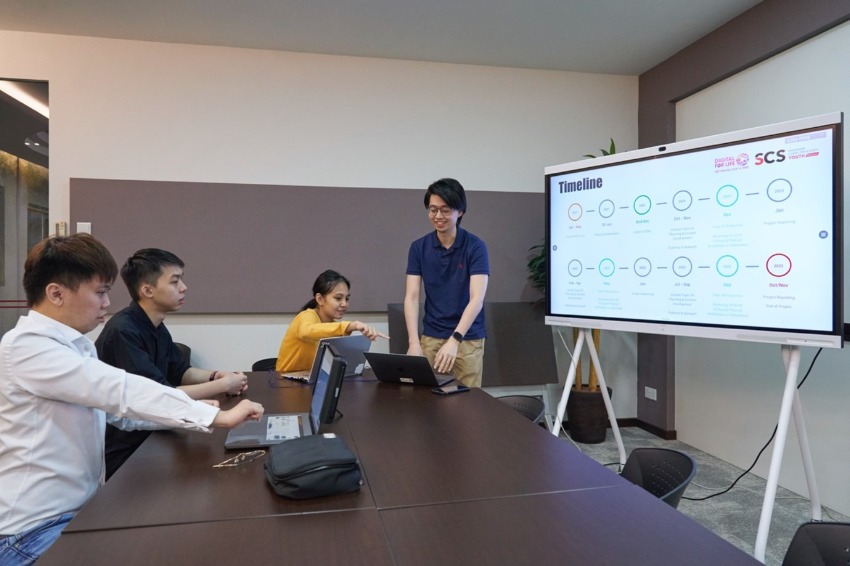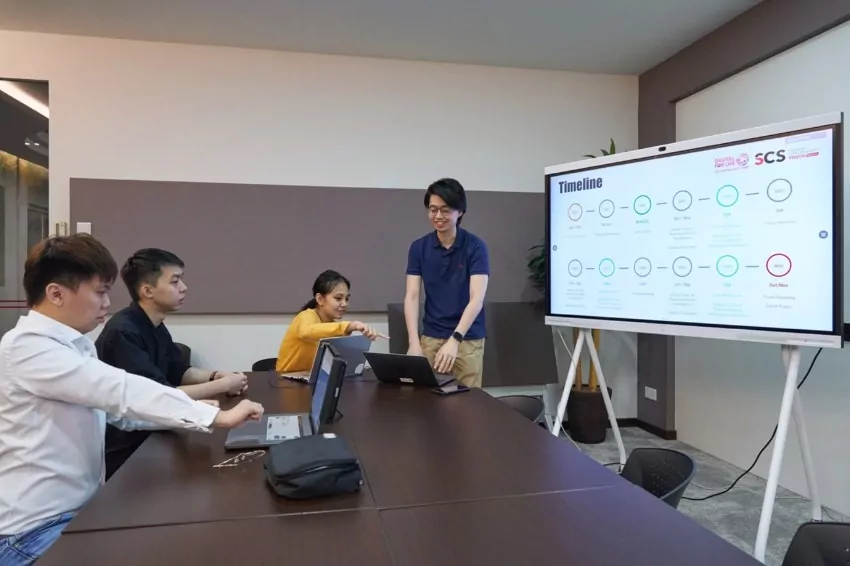

(c) Infocomm Media Development Authority
Prime Minister Lee Hsien Loong stated on Sunday (August 21) at the National Day Rally that the period of extremely competitive prices and enthusiasm for globalization has come to an end as a result of “fundamental changes” in the conditions of the international economy. He made this statement.
He stated that although Singapore has little impact over global inflation, it is within our ability to become more productive and competitive through economic transformation. This will allow employees to earn more money and improve their standard of living in absolute terms.
To a greater extent than ever before, we need to assist workers in keeping up, particularly those who lack prior knowledge and training in digital and technological abilities. According to a report by the National Trade Unions Congress (NTUC) Learning Hub, 81 percent of workers have already expressed concern regarding the influence that digitalization will have on their careers.
It is expected that Singapore’s demand for people skilled in digital and technological fields will greatly expand. Nine out of the ten occupations that the World Economic Forum predicts will be in high demand around the globe by the year 2025 are highly influenced by technological capabilities.
According to a report by 2021 SkillsFuture Singapore titled Abilities Demand for the Future Economy, it is predicted that digital skills will be required in varied degrees, depending on their work role applications. While this may sound intimidating, it is actually quite the opposite.
It is anticipated that the bulk of technology roles across all 23 industry transformation maps would be “tech-lite,” meaning that they will include the application of core digital technologies in the workplace. “Tech-heavy” roles are specialized responsibilities that are responsible for the development, implementation, and maintenance of more complicated technical solutions and applications. These roles are sometimes referred to as “developer” roles.
Therefore, it is not expected that most workers will have a mastery of artificial intelligence; however, they will need to be able to make better decisions with data by using simple “drag-and-drop” visual analytics, or they will need to be able to automate fundamental processes in business functions such as marketing or human resources by having basic coding skills in robotic process automation.
There are a lot of obstacles to overcome in order to provide the general populace with even the most basic digital abilities.
Before beginning work on digital skills, it is typically anticipated that trainees will need a baseline knowledge in computer science and programming. Second, trainees might have trouble implementing what they’ve learned in the many contexts of a new tech-lite function or organization. This could be a challenge for them.
The failure to mainstream a digital expertise may result in significant financial losses. Because the labor market is being segmented into low-skilled jobs that pay low wages and high-skilled jobs that pay higher wages, societies that are transitioning to digital economies all over the world are struggling with a rise in social inequality. This is a direct result of the job market.
Those with fewer relevant skills will continue to fall behind, but the new digital future will favor those who supply intellectual and physical capital, such as innovators, stockholders, investors, and workers who are adept in digital technology.
This may make it more difficult for Singapore to get leading multinational corporations to make investments and develop new products within the country.
If Singapore is unable to provide its general populace with the necessary digital skills, the country risks seeing its economy become increasingly stratified into two distinct tiers.
The early investments made by Singapore in the modernization of industry and training offer a solid foundation for this initiative. Since the pandemic, a large number of small and medium businesses have joined the Company Training Committees (CTCs) that have been spearheaded by the NTUC. This has brought the total number of such CTCs to more than 1,000 since the inception of the initiative.
There is reason to suppose that additional possibilities for specialized training could be beneficial to a larger percentage of the Singaporean population, particularly those who do not have a history or past experience in coding and other digital skills.
Step IT Up was first implemented in the United States in 2014 by UST, a leading firm in the field of digital technology, with the intention of providing minority and disadvantaged group members with the opportunity to pursue careers in computer science. Since then, it has been implemented in Mexico, Poland, Australia, Costa Rica, and Israel, among other places.
Approximately 87 percent of the program’s graduates have found employment in digital and technological fields with significant global firms such as Walmart, Home Depot, and Akamai, and the majority of them have remained in those positions for at least two years. Not a single one of these trainees has any prior experience in the field of computer science.
Some people have the misconception that the gap between those who have digital abilities and others who do not have these skills is enormous and unbridgeable. According to UST’s years of expertise, the key is in the trainees’ level of motivation and their ability to learn quickly.
This week, Temus launched Step IT Up in Singapore with the intention of providing training to recent graduates and mid-career professionals, with an emphasis on those who lack prior training or experience, and assisting them in securing digital and technology employment in the coming years.
There will be less of a clear distinction between what can be considered “digital” and what cannot be as technological advancements and talent movements continue to occur across more industries.
It is imperative that we achieve success in digitally transforming the workforce in Singapore, both now and in the future, because of the potential influence that a digital future could have on the cohesiveness of Singapore as a society.
The fifth prisoner exchange took place on 6 May 2025 between Russia and Ukraine involving 205 prisoners and it is…
Established in the year 1921 and it still continues to showcase the legacy of this game through generations. This ‘Emperor’s…
The NBA Playoffs of 2025 would have much perdition during the matches of the second round. In the East, the…
Jimmy O.Yang, the Asian standup comedian established his name in the international stage and he is more popular among the…
Bill Gates of the Bill & Melinda Gates Foundation declared during the Philanthropy Asia Summit on May 5, 2025 that…
The game changer of the Netflix streaming is the South Korean nail biting survival thriller web series “Squid Game” and…
This website uses cookies.
Read More